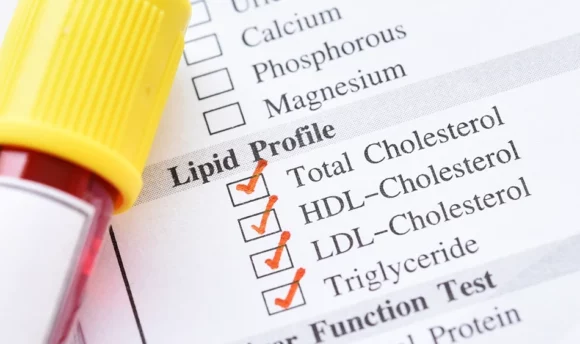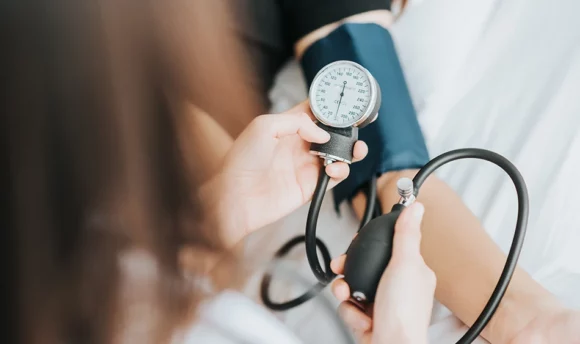Hypertension Headache Cure: 4 Ways to Relieve the Pain
Many people experience headaches when their blood pressure is too high but is that normal? There are several ways you can treat these headaches and prevent them in the future. We offer 4 techniques regarding pain relief, including useful advice about vexing migraines.

There are many symptoms that derive from high blood pressure.
Some people might experience nausea, chest pain, and vision changes. But the most common symptom is headaches that don’t seem to go away. Dealing with pain in your head all day can be challenging, especially if you don’t know how to treat it or prevent them in the first place.
Being aware of your hypertension headaches can help you lower blood pressure quickly. Any severe pain should be reported to the emergency room, so make sure to seek medical attention when necessary. If you just have normal headache pain, there are ways to relieve them.
In this article, you’ll discover four ways to soothe high blood pressure headaches.
How To Relieve Hypertension Headache?
#1 Take a pain reliever
#2 Try lying down and closing your eyes
#3 Seek emergency treatment
#4 Prevent it by following the right diet and being physically active
Hypertension Headache Cure: How to Relieve It?
People with high blood pressure will always experience physical side effects. Headaches are usually the first sign of sudden blood pressure spikes. Blood vessels in your cranium start to feel cramped, leading to a hypertension headache that feels like continuous pulsating pain.
Let’s take a look at 4 ways you can eliminate those headaches:
#1 Take a pain reliever
Taking pain medication might seem obvious, but it’s the first thing you should do when experiencing a throbbing migraine. Any type of headache that pulsates around the entire skull can seem quite worrying, so aim to take a pain reliever when you start noticing symptoms.
People who are using blood pressure medication should check what painkillers are safe to consume. Certain pills might clash with your current prescription and upset your bowel movements. Serious constipation often triggers headaches and prolonged chest pain.
Severe hypertension may cause worse headaches that don’t go away. If this happens, treat it like a medical emergency and go straight to the hospital. A hypertensive crisis (severe blood pressure increase) might lead to strokes and other symptoms that threaten your well-being.
#2 Try lying down and closing your eyes
Another way to relieve stubborn headaches is by lying down in a dark room and closing your eyes. Direct light could turn the pain into a severe headache. Your blood pressure levels might need a while to properly balance out, so take a long rest and don’t do anything too straining.
Light also activates nerve cells in the brain that trigger migraine pain. Try to limit your daily screen time on devices and sleep in a pitch-black environment. Always seek immediate medical attention if you get frequent headaches from high blood pressure.
#3 Seek emergency treatment
You may need to get professional medical advice when dealing with a frequent hypertensive headache. A doctor can check your blood pressure and prescribe emergency medicine. High blood pressure headaches may be a sign that your body is struggling to ease blood flow.
It’s not worth experiencing severe complications when treating migraines yourself. Professionals understand what to do in a hypertensive crisis. Other symptoms like shortness of breath, serious anxiety, vomiting, blurred vision, and seizures count as a medical emergency.
#4 Prevent it by following the right diet and being physically active
There are ways you can prevent a high blood pressure headache. Healthy diets and consistent exercise routines may relax blood vessels, leading to low blood pressure. This might sound easy to begin with, but you need the right motivation to build effective lifestyle habits.
People often follow the ketogenic diet to manage high blood pressure. Eating low-carb foods reduces the risk of type 2 diabetes and cardiovascular disease. The keto diet is also great for losing weight, so plan your keto food list and stick to those meal plans for a few weeks.
To get more physical activity, go for morning runs or even simple walks. Cardiovascular exercise is great for strengthening your heart. You might notice the high BP symptoms are gone once you’ve finished. Staying consistent may prevent those stubborn headaches from coming back.
What Causes Hypertension Headaches?
High blood pressure can strain nerves in your cranium, leading to migraines that trigger severe head pain. Restricted blood flow might also affect your blood-brain barrier. A frequent headache may be the first sign that your blood pressure levels are too high.
There are two measurements that will determine your blood pressure. Systolic blood pressure, the top number on your sphygmomanometer, shows the amount of force in arteries when your heart beats. Anything above 120 can represent hypertension, so always check the numbers.
Diastolic blood pressure is the bottom number that measures the force when your heart rests and fills with blood. If the diastolic shows more than 80, your blood pressure isn’t normal. However, these numbers fluctuate every day, depending on certain environmental factors.
Common symptoms of hypertension, like anxiety and muscle tremors, might cause physical stress. The more stress you experience, the more likely your blood pressure will rise. This results in a future headache due to tension in your brain and heart.
Is a headache a sign of high blood pressure?
No, getting a headache doesn’t mean you instantly have high blood pressure. Headaches can be caused by other common factors, like dehydration, serious constipation, and lack of sleep. If you get recurring headaches, get your blood pressure checked to rule it out.
However, blood pressure and headaches often have a link. Few people realize how the body responds to changes in your artery walls. Experiencing a hypertensive crisis (or just very high blood pressure) may put extra force on the brain, encouraging blood leakage in this organ.
People who do get a random headache should get it checked out anyway. If you notice other symptoms, like nosebleeds, irregular heart rhythm, and vision disturbance, seek medical help urgently. Doctors can treat your hypertensive emergency through medicative treatment.
What Do Blood Pressure Headaches Feel Like?
You might suddenly feel a pulsating or uncomfortable sensation all over your head. A high blood pressure headache doesn’t just affect one side like normal migraines. Some people report feeling like two clamps are pushing against either side of their skull.
Normal headaches usually trigger average head pain that goes away. In very severe cases, high blood pressure will leak blood into your brain and increase the risk of strokes. You might experience that “splitting pain” that travels around the entire head and down your neck.
Malignant hypertension can give you the worst pain when not treated properly. Those with high blood pressure may get regular migraines that only ease after taking over-the-counter medication. Speak to a doctor if your headache frequency increases each month.
Can Hypertension Cause Migraine?
Hypertension and migraines coexist when your blood pressure numbers are too high. A migraine is similar to tension headaches, except they may get super painful. This type of headache can get worse depending on how much caffeine you drink daily.
Migraine attacks could mean you have high blood pressure. This isn’t always the case, as people with normal blood pressure can still experience painful headaches. Clinical trials suggest that migraines due to severe hypertension should be counted as a hypertensive emergency.
Some common symptoms of a migraine include nausea, vomiting, throbbing head pain, and light sensitivity. Drinking lots of water and getting plenty of sleep can help ease the high blood pressure headache. You can also get over-the-counter medication to treat sudden migraines.
Can a migraine cause high blood pressure?
Yes, migraines may cause high blood pressure in those who suffer from hypertension headaches. A migraine disease can put you at a higher risk of elevated blood levels. This is due to stress that creates a surge in hormones and nerve cells.
Being in frequent pain can disturb hormones that regulate blood pressure. Your heart will start to beat faster once you’re stressed, causing blood vessels to narrow. The change might not cause long-term high blood pressure, but it may put your body under a lot of physical stress.
If you get regular migraine attacks, seek professional help to rule out a possible medical condition. A healthcare provider will look for any signs that point toward migraine disease. You can also receive medication to prevent migraines or dull severe head pain.
There are some suitable home remedies that can help those with migraines. One includes putting a cold pack over your eyes for 10–20 minutes. This can relieve pain in the center of your head. Some people try meditation techniques to calm their bodies after painful stress.
Do Hypertension Headaches Go Away?
The pain might go away once you start lowering blood pressure to the recommended level. A normal blood pressure of around 120/80 mm Hg or lower is a healthy range. Once you control hypertension, the headache attacks should settle down.
It’s normal to worry about the length of headaches and migraines. Some of them may last over two days, depending on how high your blood pressure is. Experiencing a hypertensive crisis could also prolong headaches, so make sure to get the right treatment for your health.
/bey
Headaches that don’t go away after medication or time should be reported to your doctor. This could be a sign of an underlying health condition. To treat headaches quickly, dim your lights, stay hydrated, avoid drinking caffeine, and take some magnesium supplements.
How Long Does a Blood Pressure Headache Last?
A high blood pressure headache can last anywhere between 15 minutes to 24 hours. This depends on your blood pressure, current diet, environment, and hormones. Not everyone will have prolonged headaches, but it might take longer than two days to properly go away.
The higher your blood pressure is, the more likely headaches will stay. Secondary headaches (linked to underlying health conditions) typically stick around for one full day before disappearing quickly. However, make sure to drink plenty of water to control high blood pressure.
Just remember that not all headaches relate to hypertension. You might get migraines due to increased hormone levels or too much screen time. Looking after your body can prevent migraine attacks, so get plenty of exercise that involves long walks or even cycling.
A Word From Our MD
Painful headaches that won’t go away can be extremely annoying. This is especially true if you have high blood pressure and can’t battle migraine attacks. Hypertension is usually linked to physical symptoms like headaches, but that entirely depends on your body.
Doctors might check your health history to determine any medical conditions. It’s always better to rule out serious problems that damage your brain. You can also receive advice about how to limit essential hypertension – high BP caused by obesity, type 2 diabetes, and a high salt intake.
Just remember to evaluate your headache and document worrying signs. For example, if you experience vision changes, that might represent a migraine disease or even strokes. That’s why it’s very important to visit the emergency room when something doesn’t feel right.
Conclusion
Headaches from high blood pressure can be normal. You can take a pain reliever to settle the throbbing feeling. There are also ways to prevent stubborn headaches, like following a healthy diet or going for a long-distance run. Either of these methods can help lower blood pressure.

















































 Select your language:
Select your language: 








